Kurdish Female Fighters: The History of Women on the Frontline
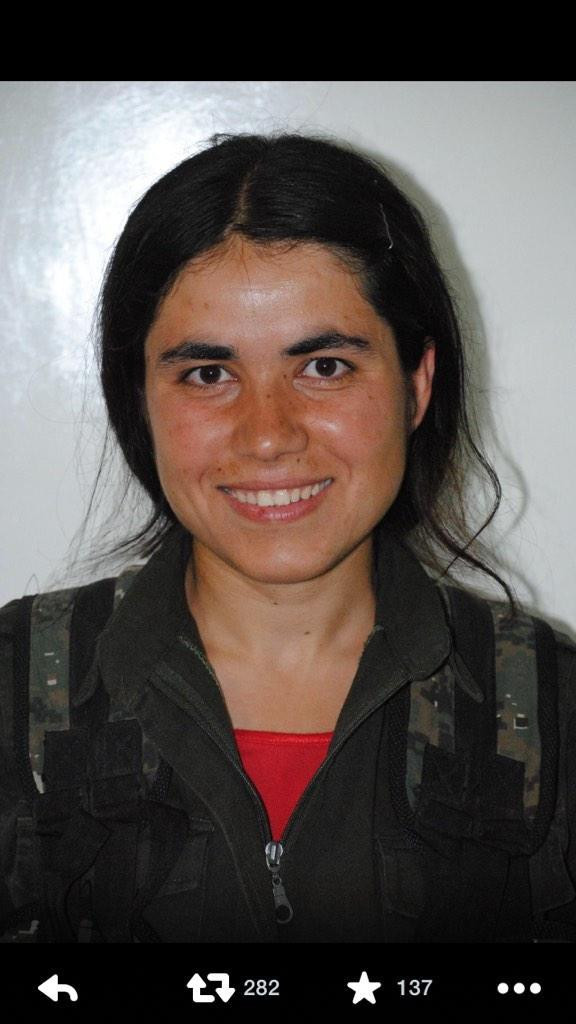
Kurdish fighters battling Isis (now known as Islamic State) militants for the besieged Syrian town of Kobani employed a new tactic when a female suicide bomber blew herself up, killing dozens of jihadists.
Named as Arin Mirkan, the woman is reportedly a commander in the Kurdish People's Protection Unit, known as the YPG. After clashes with militants as the town was pummelled by mortar fire from IS, Mirkan broke into an IS bastion on the eastern outskirts of the town, which is seen as a key step to halting the advance of the militants, and killed herself with a grenade.
The act marks the first known instance of a female Kurdish fighter carrying out a suicide attack, the Syrian Observatory for Human Rights reported. According to various estimates, female fighters make up between 7,000 and 10,000 of the Kurdish forces fighting in Syria. However, this is not the first time women have been on the frontlines of war.
Israeli Army
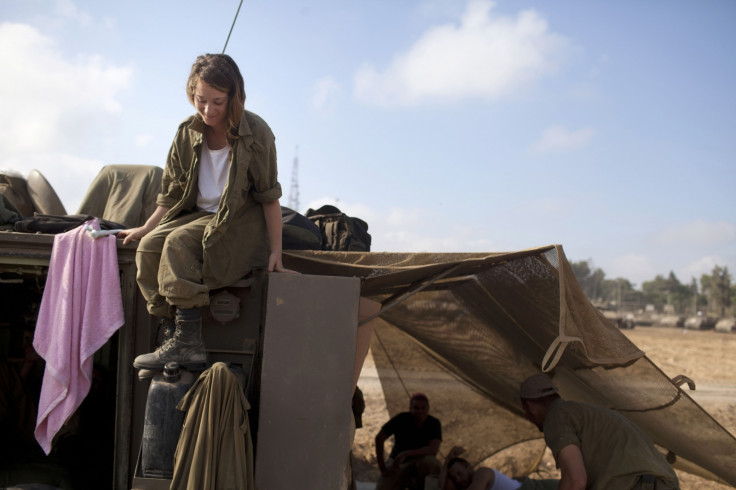
Israel is one of a handful of countries in the world – along with Norway and Eritrea – with a mandatory military service requirement for women. Women have taken part in Israel's military before and since the founding of the state in 1948, they comprise 33% of all Israel Defence Forces soldiers and 51% of its officers.
Mandatory service for women in the IDF is 24 months but they may be exempt for reasons of religious conscience, marriage, pregnancy or motherhood. The Women's Corps was disbanded in 2000, so female soldiers would fall under the authority of individual units, rather than gender.
Red Army
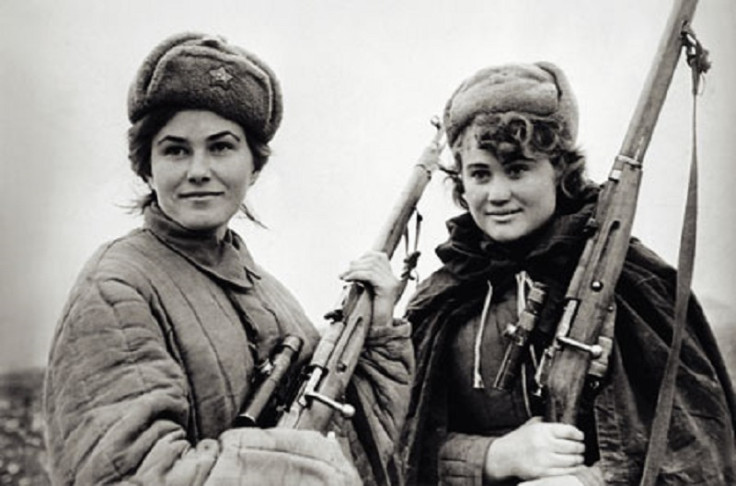
The Soviet Union was one of the first contemporary societies to employ women extensively in its armed forces, who served in the First World War, the Revolution and the Second World War. During WW2, three women's air regiments flew combat aircraft.
Over 800,000 women served in the Soviet armed forces in WW2, with 200,000 awarded the highest award of the Hero of the Soviet Union. They served as pilot, machine gunners, tank crew members and partisans but very few women were promoted to officers.
Tamil Separatists

Since the start of the Sri Lankan Civil War in 1983, Tamil women have occupied a central role in the conflict. In the insurgency against the government by the Liberation Tigers of Tamil Eelam, the Tamil Tigers, the sociocultural role of women has undergone a significant transformation.
Female Tamil Tigers fighters fought alongside men during the 26-year military campaign, before the Sri Lankan military defeated the organisation bringing the civil war to an end. Between 30% and 40% of the organisation's suicide bombings were carried out by women. In May 1991, former Indian Prime Minister Rajiv Gandhi was assassinated by Tamil Tiger Thenmozhi Rajaratnam.
Lebanese Civil War
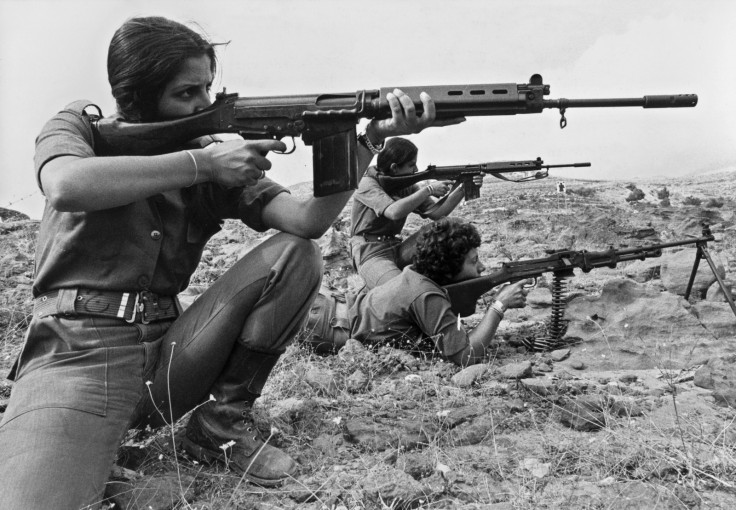
Sana'a Mehaidli, a member of the Syrian Socialist Nationalist Party, became one of the first-known female suicide bombers when she detonated a car bomb next to an Israeli military convoy in South Lebanon in 1985, during the Lebanese Civil War.
During the war, which broke out in 1975, female SSNP members bombed Osraeli troops and the Israeli proxy militia – the South Lebanon Army.
The right-wing Lebanese Phalanges Party, otherwise known as the Kataeb Phalangist party, also employed female fighters. Along with other political groups, the party - supported mainly by Maronite Christians - formed the Lebanese Resistance to preserve Lebanon's independence, driven an ideal of Christian dignity in the Middle East.
UAE Airforce

In September, a female pilot from the United Arab Emirates air force took part in a bombing mission of IS targets in Syria. Major Mariam al-Mansouri, 35, was one of four UAE fighter pilots to take part in the operation.
Mansouri, from Abu Dhabi, graduated from the UAE air force academy in 2008 after becoming one of the first women to join after it scrapped its ban on women. In the summer, she told CNN: "I put my mind to being a fighter pilot. But at that time, the doors were not open for females to be pilots, so I had to wait almost 10 years."
Boko Haram
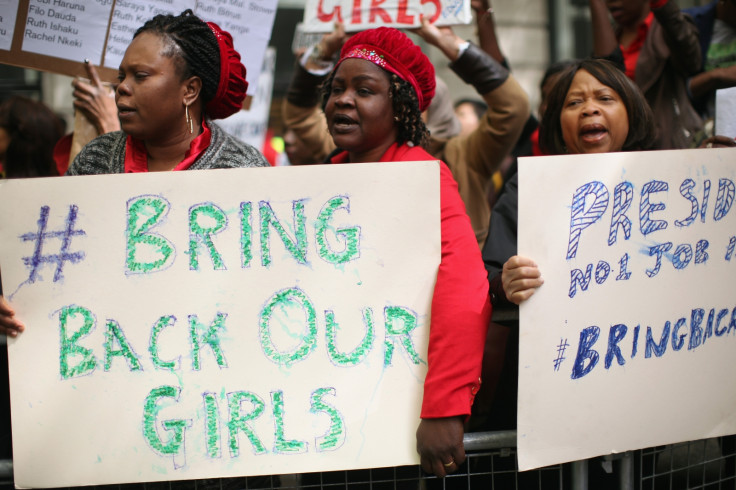
Nigeria's militant Islamist group was accused in August of unleashing a new weapon of war – the female suicide bomber. The news fuelled concerns that the insurgency had entered a more ruthless phase.
That month, four teenage girls carried out attacks in the northern city of Kano. The reports sparked speculation – which was dismissed as unfounded by the government – that Boko Haram had turned some of the more than 200 schoolgirls abducted in April into human bombs.
Bundeswehr
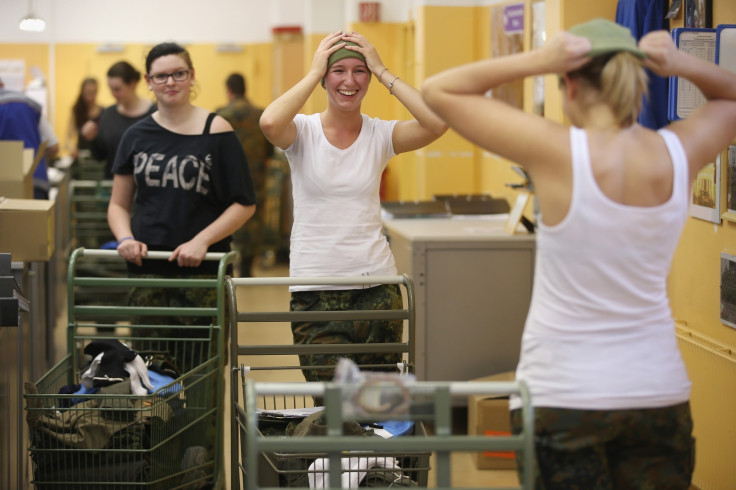
Women have served in the medical service of Germany's armed forces since 1975. From 1993 to 2000, they were allowed to serve as enlisted personnel and non-commissioned officers in the medical service and the army bands.
Yet in 2000, the European Court of Justice issued a ruling allowing women to serve in more roles; since 2001, they can serve in all functions without restriction but were not subject to conscription. There are currently around 18,617 women on active duty and on other operations.
© Copyright IBTimes 2025. All rights reserved.






















